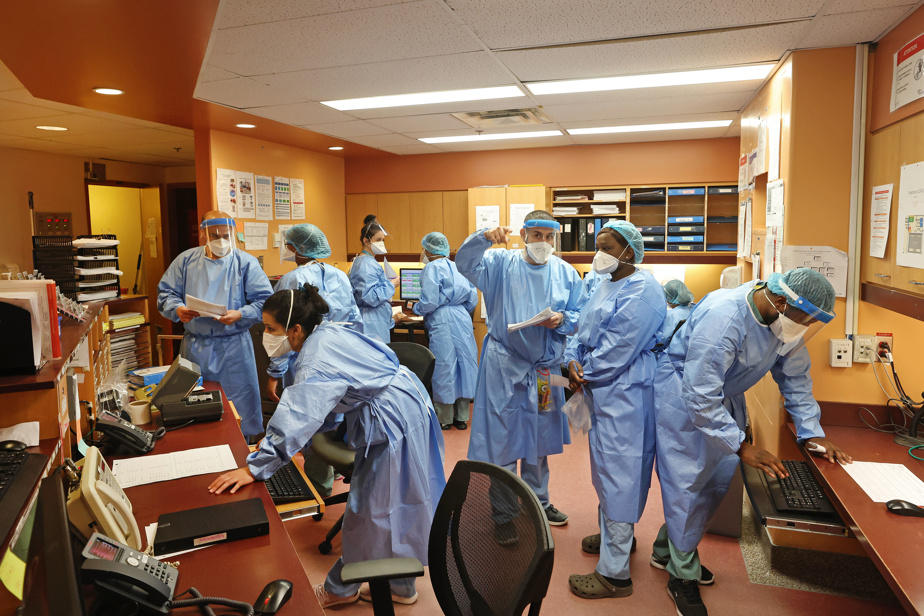The CIUSSS de l’Est-de-l’Île-de-Montréal will prohibit nurses from doing sit-ins on Friday under penalty of significant penalties. A measure that will harm patients and staff retention, argues a union.
No sit-ins will be tolerated from May 5 in hospital sectors for nurses, nursing assistants and respiratory therapists, the labor relations department team said in a newsletter sent to employees. The administration thus wishes to avoid “that the services to which the population is entitled” are compromised.
“If a sit-in occurs, we will appeal to the Administrative Labor Tribunal, which has the power to intervene. First in conciliation, then to order the return to work of the staff under penalty of contempt of court”, can we read there.
The administration will assess on a case-by-case basis the possibility of instituting other administrative, disciplinary, legal and ethical measures for any person participating in a sit-in. No hour in sit-in will be paid and the code STRIKE, which is penalizing for access to several bonuses, will be indicated on the schedule.
“We were shocked. The employer seems really condescending. It’s akin to a form of threat or blackmail that they used to make employees fear reprisals and prevent them from demonstrating,” the president of the Union of Healthcare Professionals of Est-de-France told La Presse. -Island of Montreal, Denis Cloutier.
Sit-ins occur on an ad hoc basis, mainly during a shift change in the emergency room. They allow nurses to protest against the overload of work and the lack of employees preventing them from offering safe care to patients. Sit-ins usually last from a few minutes to a few hours.
“It’s always a cry from the heart of professionals who act for the good of their patients,” says Cloutier. “The healthcare professionals have the health of their patients at heart and do not want to leave them without care. If they go so far as to demonstrate while remaining seated, it is because they consider that care is too precarious. »
The president of the union fears that the attitude of the managers is detrimental to the retention of staff. “It makes us fear the worst. We are afraid that there will be even more who leave,” he said.
He denounces the work overload and the excessively high patient-to-nurse ratios. “A nurse in the Santa-Cabrini or Maisonneuve-Rosemont emergency room can sometimes find herself with about fifteen patients under her responsibility. These are numbers that make no sense compared to good practice […] where nurses have 4 or 5,” he says.
However, he noted a drop in mandatory overtime (TSO) since the emergency crisis at Maisonneuve-Rosemont hospital at the start of the year. In January, the nurses on the evening shift at the Maisonneuve-Rosemont hospital refused a contingency plan imposed by the management of the hospital which wanted them to work in a reduced team and a sit-in was held. This plan, in their view, put the health and safety of patients at risk.

